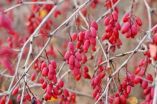(Press-News.org) From the Statue of Liberty in New York to the Tower of London or the Sydney Opera House -- sea-level rise not only affects settlement areas for large parts of the world population but also numerous sites of the UNESCO World Heritage. This is shown in a new study by Ben Marzeion from the University of Innsbruck and Anders Levermann from the Potsdam Institute for Climate Impact Research.
"The physical processes behind the global rise of the oceans are gradual, but they will continue for a very long time," says climate scientist Ben Marzeion. "This will also impact the cultural world heritage." The scientists computed the likely sea-level rise for each degree of global warming and identified regions where UNESCO World Heritage will be put at risk throughout the coming centuries. While public interest so far was focused mainly on ecological and agricultural impacts of climate change, Marzeion and Levermann in the journal Environmental Research Letters now put the focus on the cultural heritage of mankind.
136 out of 700 listed cultural monuments will be affected in the long-term
The UNESCO World Heritage List comprises a total of more than 700 cultural monuments. If global average temperature increases by just one degree Celsius, already more than 40 of these sites will directly be threatened by the water during the next 2000 years. With a temperature increase of three degrees, about one fifth of the cultural world heritage will be affected in the long term. "136 sites will be below sea-level in the long-run in that case if no protection measures are taken," Ben Marzeion specifies. "The fact that tides and storm surges could already affect these cultural sites much earlier has not even been taken into account." Among the world heritage sites affected are, for instance, the historical city centres of Bruges, Naples, Istanbul and St. Petersburg and a number of sites in India and China.
In order to make reliable statements, the climatologists also consider the regionally different rates of sea-level rise. "If large ice masses are melting and the water is dispersed throughout the oceans, this will also influence the Earth's gravitational field," says Anders Levermann. "Sea-level rise will therefore vary between regions." The scientists calculated future sea-level rise for all world regions and compared these projections with today's coastal settlement areas and the sites of the cultural world heritage. "Our analysis shows how serious the long-term impacts for our cultural heritage will be if climate change is not mitigated," says Anders Levermann. "The global average temperature has already increased by 0.8 degrees compared to pre-industrial levels. If our greenhouse-gas emissions increase as they have done in the past, physical models project a global warming of up to five degrees by the end of this century."
Currently populated regions become oceans
Apart from historical cultural monuments, regions that are currently populated by millions of people would thus be affected. With a global warming of three degrees, twelve countries around the world could lose more than half of their present land area and about 30 countries could lose one tenth of their area. "Island states in the Pacific and the Caribbean as well as the Maldives and the Seychelles are particularly threatened, but not only these," says Anders Levermann. "A majority of their population will eventually need to leave their home islands in the long-term, so most of their culture could be entirely lost sooner or later if the warming trend is not stopped," Ben Marzeion adds. Seven percent of the world's population today live in regions that, without massive protection, will eventually be below sea-level if temperatures rise to three degrees. "If that sea-level rise occurred today, more than 600 million people would be affected and would have to find a new home," Marzeion emphasizes.
In Southeast Asia, where many people are living at the coasts, sea-level rise will impact especially strong. But parts of the United States will be affected as well, as for instance the state of Florida. "These major long-term changes along our coast lines will most probably change cultural structures fundamentally," says Marzeion. "If we do not limit climate change, the archaeologists of the future will need to search for major parts of our cultural heritage in the oceans."
INFORMATION:
Article: Marzeion, B., Levermann, A. (2014): Loss of cultural world heritage and currently inhabited places to sea-level rise. Environmental Research Letters [doi: 10.1088/1748-9326/9/3/034001]
Weblink to the article once it is published: http://iopscience.iop.org/1748-9326/9/3/034001/article
For further information please contact:
PIK press office
Phone: +49 331 288 25 07
E-Mail: press@pik-potsdam.de
Twitter: @PIK_Climate
Ben Marzeion
Institut für Meteorologie und Geophysik
Universität Innsbruck
Tel.: +43 512 507-5482
E-Mail: ben.marzeion@uibk.ac.at
Cultural world heritage threatened by climate change
2014-03-05
ELSE PRESS RELEASES FROM THIS DATE:
Sea-level rise threatens UNESCO World Heritage sites
2014-03-05
Some of the world's most recognisable and important landmarks could be lost to rising sea-levels if current global warming trends are maintained over the next two millennia.
This is according to a new study, published today, 5 March, in IOP Publishing's journal Environmental Research Letters, that has calculated the temperature increases at which the 720 sites currently on the list of UNESCO World Heritage sites would be impacted by subsequent sea-level rises.
The Statue of Liberty, Independence Hall, Tower of London and Sydney Opera House are among the 136 sites that ...
Passive smoking causes irreversible damage to children's arteries
2014-03-05
Exposure to passive smoking in childhood causes irreversible damage to the structure of children's arteries, according to a study published online today (Wednesday) in the European Heart Journal [1].
The thickening of the arteries' walls associated with being exposed to parents' smoke, means that these children will be at greater risk of heart attacks and strokes in later life. The researchers from Tasmania, Australia and Finland say that exposure to both parents smoking in childhood adds an extra 3.3 years to the age of blood vessels when the children reach adulthood.
The ...
Lower index to ring finger ration associated with higher risk of osteoarthritis in knee
2014-03-05
A new study published online today in the journal Rheumatology has found that the lower the ratio between a person's index finger (2D) and their ring finger (4D), the higher their risk of developing severe osteoarthritis in their knees, requiring a total knee replacement.
Osteoarthritis (OA) is a major public health problem linked with significant disability in knees and hips. Hormonal factors are thought to play a role, which is thought to account for the well documented difference in prevalence of OA between men and women. Anthropological studies have suggested that ...
Are plants more intelligent than we assumed?
2014-03-05
This news release is available in German.
Leipzig. Plants are also able to make complex decisions. At least this is what scientists from the Helmholtz Center for Environmental Research (UFZ) and the University of Göttingen have concluded from their investigations on Barberry (Berberis vulgaris), which is able to abort its own seeds to prevent parasite infestation. The results are the first ecological evidence of complex behaviour in plants. They indicate that this species has a structural memory, is able to differentiate between inner and outer conditions as well ...
Hot on the trail of cellular metabolism
2014-03-05
UCPs or uncoupling proteins are present in mitochondria, the powerhouse of each cell in the body. The functions of most of the five known UCPs remain mysterious (UCP2-UCP5), whereby only the distinct function for UCP1 has thus far been discovered. UCP1 is responsible for heat production when muscle activity is deficient such as is the case with babies and animals in hibernation. The research team at the Department of Physiology and Biophysics at the University of Veterinary Medicine in Vienna were able to provide a fundamental explanatory concept for the function of UCP2 ...
Study shows nearly fivefold increased risk for heart attack after angry outburst
2014-03-05
BOSTON – Call it what you will – getting red in the face, hot under the collar, losing your cool, blowing your top – we all experience anger. And while we know that anger is a normal, sometimes even beneficial emotion, we're also aware of the often harmful connection between anger and health. New research from Beth Israel Deaconess Medical shows an even more compelling reason to think about getting anger in check – a nearly fivefold increase in risk for heart attack in the two hours following outbursts of anger.
"There has been a lot of research on anger; we already ...
Not even freezing cold stops alien species in high altitudes
2014-03-05
They hitchhike with us under the soles of our shoes and muddy car tires. Harsh and cold climates do not seem to stop alien plants from establishing themselves in high altitudes, where they now successfully penetrate the alpine vegetation, according to a study at Umeå University in Sweden and the University of Antwerp, Netherlands.
"Alien plants often gain advantages in their new environment because they lack natural enemies, and in this case the lack of strong competitors amongst alpine plants may be the key to success for generalist native species," says ecologist Ann ...
Horses set to gain health benefits from stem cell advance
2014-03-05
Horses suffering from neurological conditions similar to those that affect humans could be helped by a breakthrough from stem cell scientists.
Researchers who are the first to create working nerve cells from horse stem cells say the advance may pave the way for cell therapies that target conditions similar to motor neurone disease.
The research could also benefit horses affected by grass sickness, a neurological condition that affects around 600 horses a year in the UK.
Little is known about the disease, which causes nerve damage throughout the body. It is untreatable ...
Women's jobs are poorer paid, less flexible and more stressful
2014-03-05
Women's jobs are poorer paid, less flexible, more stressful, and offer fewer promotion opportunities than men's, a large international study has found.
Researchers say that the results disprove the theory that women have voluntarily traded less high-powered jobs in order to have more flexibility for their responsibilities at home.
Professor Haya Stier, of Tel Aviv University, and Professor Meir Yaish, University of Haifa, analysed survey data on the working lives of 8,500 men and 9,000 women in 27 industrialised countries, including the UK.
In a paper published ...
New: An environmentally friendly chemical reaction that does not waste any atoms
2014-03-05
This news release is available in German.
In the Research Group of Nuno Maulide, a chemist working at the University of Vienna, a new chemical synthesis for α-arylated Carbonyl derivatives was developed. Members of this class of substances typically possess interesting biological and pharmacological properties and often find applications as medicines. The new technique developed by the Maulide group, which allows such Carbonyl derivatives to be generated easily, efficiently and in an environmentally friendly manner – without wasting any atoms –, has raised ...


